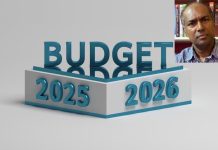The government attitude towards monetary policy is an attempt (a) to control the supply of money, (b) to control interest rates (c) to ration the amount of credit granted by banks. This monetary policy is highly controversial because the majority of economists do not agree (nor most politicians for that matter) on how effective the forthcoming new monetary policy can be, or on what form it should take.
The old monetary policy has undergone enormous changes since the days of SSR. Between the 60’s and the 70’s, fiscal policy was seen as the major weapon for controlling the economy. That monetary policy was relegated to the fairly minor role of preventing excessive fluctuations in the interest rates. For most of this period, this simply meant allowing money supply to expand to accommodate increases in aggregate demand associated with expansionary fiscal policy (otherwise the shortage of money would have driven up interest rates). It also meant allowing money supply to contract, or grow less rapidly, when deflationary fiscal policies were pursued.
During the 1980’s, there was a major swing in the attitude of many economists and politicians. The rise of monetarism was accompanied by increased importance being attached to monetary policy. There were a number of factors leading to this. The main ones were as follows:
(1) Failure to account for and provide solutions to the growing problem of stagflation. Fiscal policy had failed; perhaps monetary policy could provide the answer.
(2) Increased academic interest in monetary economics, and in particular increased evidence, most notably that Milton Friedman and Anna Schwartz in their Monetary History of the USA, that there is a direct causal link between growth in the money supply and inflation.
Our country needs to adopt a more pragmatic approach to monetary policy. It has been found difficult to control money supply and to keep it within target ranges. Any way a government can cope with any resulting inflation after the desire to prevent exchange rate fluctuations, and the use of changes in interest rates to achieve this. As we shall see, if the interest rate is used to control exchange rates, it cannot at the same time be used to achieve money supply targets.
In framing its new monetary policy, the government must address itself to a number of important questions.
What are the goals of monetary policy? Is the aim simply to control inflation, or does the government wish also to affect output and employment, or does it want to control the exchanging rate? Where does monetary policy fit into the total package of macroeconomic policies? Is it seen as the major or even sole macroeconomic policy weapon? What element of the monetary system should the government seek to control? Should it be the supply of money, and if so which measure? Should it be the demand for money, and if so, how that should be measured? Or should it be the rate of interest and if so at what level? Should the government take a long term of perspective or a short-term perspective? Should it adopt a target for money supply growth, and stick to it come what may? Or should it adjust its policy as circumstances change and attempt to “fine tune” the economy.
How reliable is monetary policy in controlling monetary variables? Just how successfully can our government control money supply or interest rates? In order for the government to be successful in its monetary policy, there is a great need to have the cooperation of the Central Bank of Mauritius. Since few years, there is a general perception that our Central Bank is not operating independently from the claws of most of our Finance Ministers we have had. Most Governors of our Central Bank are these days being dictated by the Finance Ministers. So far, none of those governors appointed has been efficient. No wonder why our country has never been economically independent up to now.
Only time will tell whether or not Renganaden Padayachy, Minister of Finance, will take the bull by the horns and control our economy efficiently for the prosperity of both the people and the country. To achieve a good monetary policy, we need a very firm PM, an honest performing Finance Minister and an efficient governor of our Central Bank of Mauritius.
Ahmad MACKY (The Author)
NOTE : Les points de vue exprimés dans cette rubrique ne reflètent pas nécessairement ceux de la rédaction et n’engagent que les auteurs eux-mêmes.



![[Khutbah – La réflexion du Vendredi] Gaza : Le piège de l’oubli ou la stratégie de la diversion](https://sundaytimesmauritius.com/wp-content/uploads/2025/06/gaza-netzarim-corridor-humanitaire-218x150.jpg)



![[Yoga] A shared legacy, a shared future](https://sundaytimesmauritius.com/wp-content/uploads/2025/06/Yoga-Article-HC-218x150.jpg)
![[Khutbah – La Réflexion du Vendredi] Tawakkul, la confiance absolue en Allah (swt)](https://sundaytimesmauritius.com/wp-content/uploads/2025/06/Tawakkul-218x150.jpg)
![[Conseillers du MSM] Cumul de postes sur les boards : Un système lucratif d’enrichissement personnel](https://sundaytimesmauritius.com/wp-content/uploads/2025/06/pic-2-150x150.jpg)
![[National Agency for Drug Control] Sam Lauthan : « C’est tous ensemble qu’on vaincra la mafia »](https://sundaytimesmauritius.com/wp-content/uploads/2025/06/WhatsApp-Image-2023-02-16-at-4.22.48-PM-e1738665704593-150x150.jpeg)
![[OMCA Foundation] Un dîner de gala pour soutenir l’accès aux soins des plus démunis](https://sundaytimesmauritius.com/wp-content/uploads/2025/06/f960dc68-ed3e-4619-ae8e-dd8f374d07c4-150x150.jpg)

![[Conseillers du MSM] Cumul de postes sur les boards : Un système lucratif d’enrichissement personnel](https://sundaytimesmauritius.com/wp-content/uploads/2025/06/pic-2-100x70.jpg)
![[National Agency for Drug Control] Sam Lauthan : « C’est tous ensemble qu’on vaincra la mafia »](https://sundaytimesmauritius.com/wp-content/uploads/2025/06/WhatsApp-Image-2023-02-16-at-4.22.48-PM-e1738665704593-100x70.jpeg)
![[OMCA Foundation] Un dîner de gala pour soutenir l’accès aux soins des plus démunis](https://sundaytimesmauritius.com/wp-content/uploads/2025/06/f960dc68-ed3e-4619-ae8e-dd8f374d07c4-100x70.jpg)